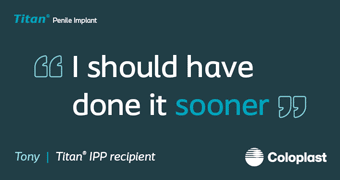strongagain wrote:I just came home from a consultation with the uro. I asked him about HCG. He almost got hysterical. Never ever would I give you a prescription for that. HCG is way too dangerous. Bodybuilders take it till the collapse due to heart failure. It‘s extremely expensive too. Forget about it, you‘ll never get it from me. …
Wow, time for a new uro if I were you. My current and previous drs recommended and prescribed it for me no problem and have been using is safely for many years. And no, it's not expensive in my experience.
Here's what ChatGPT has to say on the subject when I asked it "Is hcg safe and effective for men to use with TRT to maintain testicular size and function?":
--------------------
Yes, HCG (human chorionic gonadotropin) is generally considered safe and effective for use in men undergoing testosterone replacement therapy (TRT), particularly for the purpose of maintaining testicular size and function, including fertility. Here's a breakdown:
-- Why HCG Is Used with TRT
TRT increases testosterone levels, but it suppresses the hypothalamic-pituitary-gonadal (HPG) axis, reducing or shutting down LH (luteinizing hormone) and FSH (follicle-stimulating hormone) production. This leads to:
Testicular atrophy (shrinkage)
Decreased sperm production (infertility)
HCG mimics LH, stimulating the Leydig cells in the testes to continue producing testosterone and supporting spermatogenesis.
-- Evidence of Effectiveness
Clinical studies and real-world use support that HCG:
Preserves testicular volume during TRT
Helps maintain intratesticular testosterone, necessary for sperm production
Is often used in fertility preservation strategies in men on TRT
Can restore fertility in some cases, even after TRT has suppressed natural function
-- Safety and Side Effects
Generally well tolerated, but possible side effects include:
Increased estrogen levels (HCG can upregulate aromatase)
Gynecomastia (breast tissue growth) due to estrogen
Acne, mood swings, or fluid retention
Testicular pain (rare)
In men susceptible to estrogenic side effects, aromatase inhibitors (like anastrozole) may be co-prescribed.
-- Typical Protocol
There’s no one-size-fits-all, but common regimens include:
250–500 IU of HCG 2–3 times per week, alongside TRT Administered subcutaneously or intramuscularly
Higher doses (≥1000 IU) are usually reserved for fertility treatment or HPTA restart protocols and come with higher risk of side effects.
-- When to Use HCG with TRT
Men who want to preserve fertility
Men concerned about testicular shrinkage
Men planning future cessation of TRT and want to maintain some testicular function
If fertility is not a concern, and testicular atrophy isn’t bothersome, HCG may not be necessary for every TRT patient.







